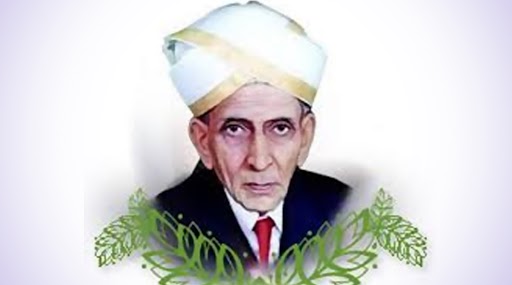Sir Mokshagundam Visvesvaraya (1861-1962) was born on September 15 and is remembered for his vital role as a civil engineer and administrator during colonial India.
M. Visvesvaraya’s Biography
- Early years: Visvesvaraya began his educational adventure in Muddenahalli, Karnataka, where he was born on September 15, 1861.
- Academic pursuits: He earned a Bachelor of Arts degree from the University of Madras before enrolling in a civil engineering diploma programme at the College of Science in Pune.

Career Highlights
- After completing his engineering studies at Poona College of Science, Visvesvaraya began his work as an Assistant Engineer in the Government of Bombay’s Public Works Department (PWD) at the age of 22.
- Among his early undertakings was the construction of a pipe syphon over one of the Panjra river’s channels.
- Dewan of Mysore: He was appointed Chief Engineer in the Mysore service in 1909, eventually becoming the 19th Dewan of Mysore.
- Voluntary Retirement: Visvesvaraya chose voluntary retirement in 1918 because he disagreed with the proposal to assign governmental employment based on caste.
- Following his retirement, he chaired or participated in a number of committees, including the Bombay Technical and Industrial Education Committee, the Bombay University Committee for Promoting Chemical Industries, and the Cauvery Canal Committee.
Important Works
- He created the block system of irrigation in the Deccan canals in 1899, promoting the equitable distribution of irrigation advantages among several villages.
- Visvesvaraya addressed the issue of “muddy and discoloured” water in Sukkur, a city on the banks of the Indus River.
- Automatic Gates: He devised automatic gates for regulating water flow in reservoirs, and he received a patent for this invention.
- Implementation at Krishnaraja Sagar Dam: In the 1920s, the Krishnaraja Sagar Dam in Karnataka was the first to use these gates.
Global Perspective
- International Learning: Visvesvaraya visited to other countries to examine various facets of their systems. During a trip to Italy, he investigated soil erosion issues as well as irrigation and drainage projects.
- Advocating for Indian Contributions: He disputed the notion that only British officers were capable of supervising advanced engineering projects, emphasising that Indian expertise was valuable when backed up with qualifications and dedication.
Vision for Progress
- In a speech delivered on March 16, 1912, at Central College Bangalore, Visvesvaraya emphasised the necessity for India to adopt modern practises, scientific precision, ingenuity, discipline, and economic basics for success.
- Self-Examination: He advocated secular self-examination by contrasting local conditions in India with global parallels.
- Visvesvaraya wrote two major books: “Reconstructing India” (1920) and “Planned Economy of India” (1934).
Impact on Education
- Education as a Catalyst: During his visit to Japan in 1898, Visvesvaraya recognised the important importance of education in building an economy.
- As the Dewan of Mysore in 1916, he was instrumental in creating the University of Mysore, emphasising the importance of educational institutions mirroring real-life realities.
Source: https://m.economictimes.com/news/politics-and-nation/why-india-celebrates-engineers-day-on-the-birth-anniversary-of-m-visvesvaraya/the-father-of-indian-engineering/slideshow/60528918.cms
